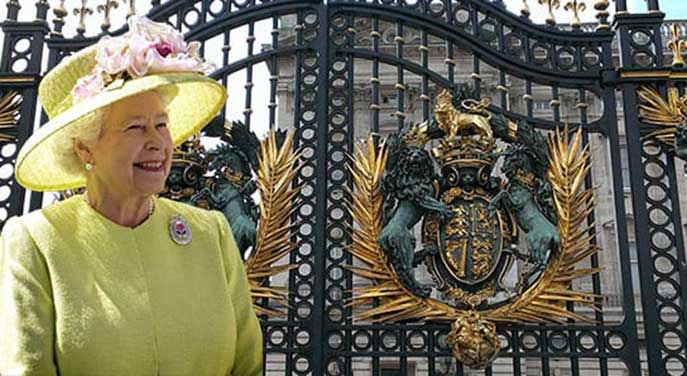 Realistically, Queen Elizabeth II’s death at age 96 wasn’t a surprise. But it still came as a jolt, the impact being accentuated by the apparent suddenness of her final decline. For many, such as my Toronto-born wife, Elizabeth’s 70-year reign as Queen of Canada rendered her a benign presence who symbolized continuity in a changing and sometimes turbulent world.
Realistically, Queen Elizabeth II’s death at age 96 wasn’t a surprise. But it still came as a jolt, the impact being accentuated by the apparent suddenness of her final decline. For many, such as my Toronto-born wife, Elizabeth’s 70-year reign as Queen of Canada rendered her a benign presence who symbolized continuity in a changing and sometimes turbulent world.
I had a different experience growing up in a Catholic nationalist household in Ireland. To us, Elizabeth was a foreigner who was associated with the historical enemy. However, the absence of awe or affection didn’t translate into animosity. And the fact that she was keenly interested in horses and prone to a flutter at the races was easy to relate to.
When it later came time to acquire Canadian citizenship, the oath’s explicit inclusion of allegiance to the monarch didn’t cause any difficulty. After all, the privilege of being allowed to join a new country requires respecting its institutions. If you won’t do that, you should stay home.
Of course, immigrant Canadians can lobby for change. They’re no different from native-born citizens in that regard.
But there’s no guarantee the change will happen. So if there’s something about a country’s fundamental institutions that’s deeply objectionable to you, it would be a good idea to forego immigrating to it.
All of which brings us to the question of the monarchy’s future in Canada. Should we become a republic?
 |
| Related Stories |
| When Elizabeth goes, the monarchy will fade in Canada
|
| Why the monarchy still makes sense in Canada
|
| God save the Queen – so she can save our country |
Colour me agnostic on the issue. Or, to be more precise, skeptically agnostic.
The agnosticism derives from not having any emotional skin in the game.
I have great respect for the way in which Elizabeth performed her role. It would’ve been hard to find a more diligent and conscientious head of state. But that hasn’t translated into an emotional connection to the Crown as an institution.
By the same token, I’ve no antipathy to the Crown. It doesn’t raise any historical hackles or touch any philosophically sensitive buttons. To me, the relevant questions are practical.
Does having a monarch as head of state work? What would we replace it with? And why do we think the replacement would be an improvement?
Places like the United Kingdom, Canada, Australia, New Zealand, the Netherlands and the Scandinavian countries are democratic constitutional monarchies. The monarch reigns but doesn’t rule, and exercises no effective political power. I don’t see any evidence that their governance is in any way inferior to that found in republics.
In fact, constitutional monarchies are inherently adept at separating the head of state function from the political process. Whatever one’s personal opinion of the monarch, you don’t have to worry about the position being occupied by some politician who is past their sell-by date but still carries the partisan baggage of a political career.
True, the concept of hereditary monarchy goes against the modern grain. It seems like a throwback to an ancient time less enlightened than ours.
Maybe, though, that’s a feature rather than a bug.
Most people want a degree of rootedness in their lives. And monarchies of some form or another have been part of human existence for millennia. Shorn of political power, they can safely deliver the ceremonial trappings, rituals and connections to the past that speak to deep-seated needs in the human psyche.
Historian Robert Tombs described Elizabeth’s June 1953 coronation as “the first global television event and the last great aristocratic and imperial flourish, where ermine and coronets mingled with turbans and slouched hats, with Churchill in the silks and feathers of a Knight of the Garter.” And a contemporary article in the Sociological Review asserted that it produced “a degree of moral unity equalled by no other national state.”
But much has changed since then. Britain is no longer the same, and the combination of time and demographic change has altered cultural attitudes in countries like Canada and Australia. The House of Windsor’s position over the coming decades remains to be determined.
As for Elizabeth herself, British columnist Brendan O’Neill, a fervent republican, expressed “a great sense of loss” at her death. He put it this way: “She embodied values that are at risk of extinction. She represented history in an era of anti-historical hysteria, forbearance in a time of narcissism, and public service in an era of self-worship and self-regard.”
Not a bad epitaph.
Troy Media columnist Pat Murphy casts a history buff’s eye at the goings-on in our world. Never cynical – well, perhaps a little bit.
For interview requests, click here.
The opinions expressed by our columnists and contributors are theirs alone and do not inherently or expressly reflect the views of our publication.
© Troy Media
Troy Media is an editorial content provider to media outlets and its own hosted community news outlets across Canada.

I accept most of what you say as balanced and well-reasoned. I agree with B O’Neill’s views on the late queen. Even though I am not an admirer of Great Britain I know of no other public figure who acted with such dignity, restraint and commitment to duty. Her approach should be the benchmark for world leaders. It won’t be